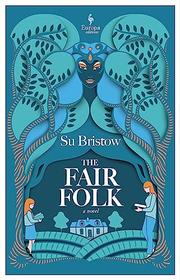Felicity Turner (“Fliss” to her hard-working, closed-mouth parents) finds an escape from the drudgery of 1950s British farm life in the antics of the spirits she finds frolicking in the nearby woods. In her youthful exuberance, she makes the classic mistake of inviting the mischief-makers into her home—an error she’ll be paying for well into her college years at Cambridge. Fairies are notoriously transactional, according to the lore, and Queen Elfrida has a particular payment in mind for having restored Felicity’s young cousin after replacing her with a sickly changeling. Felicity’s university curriculum consists largely of trying to figure out what trade-off Elfrida expects to exact. Felicity finds an ally in the form of an elderly don who’s made the fairy kingdom a scholarly pursuit. Unfortunately, once the book moves past the giddy delights of young Fliss’ discoveries, her quest—to try to understand what’s expected of her—proves plodding. She edges into a tepid romance, easily overshadowed by her love/hate relationship with the haughty, capricious Elfrida. Will there be a dramatic showdown? As surely as titans clash at the climax of a blockbuster fantasy film. The real pleasures of the novel lie in Fliss’ early explorations of the natural world.

